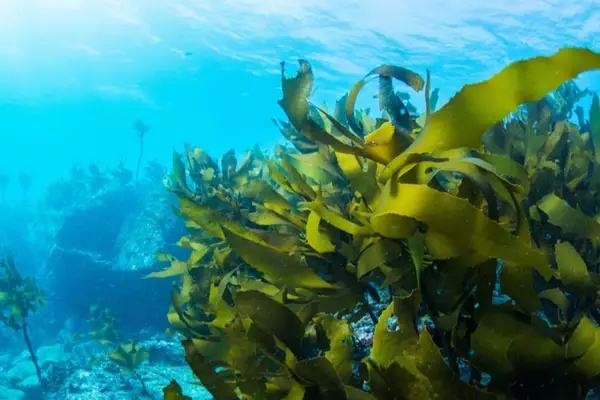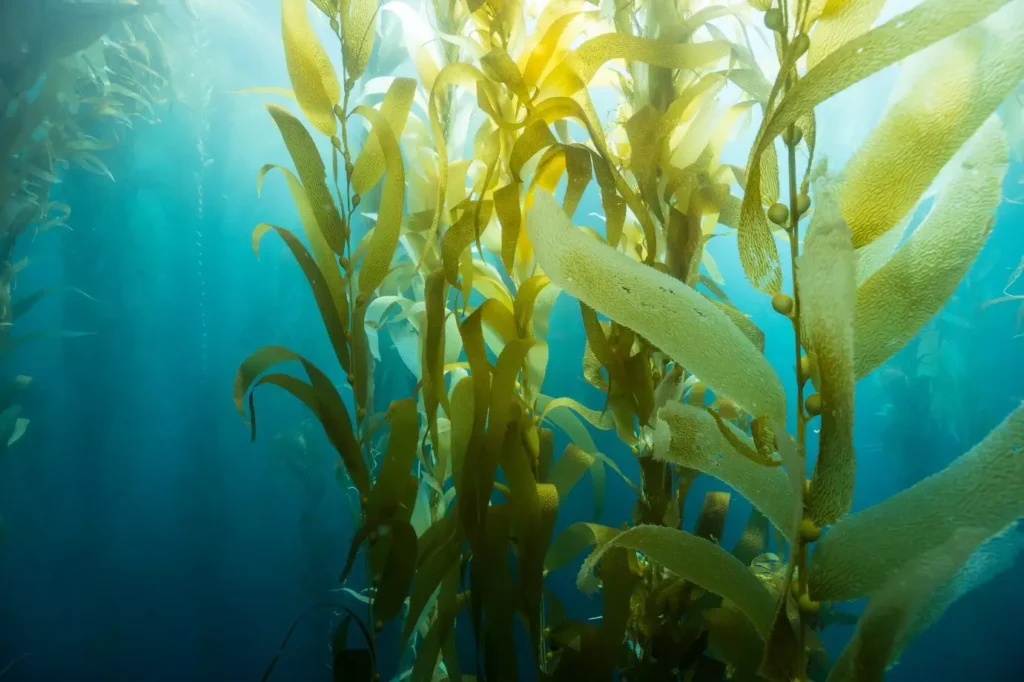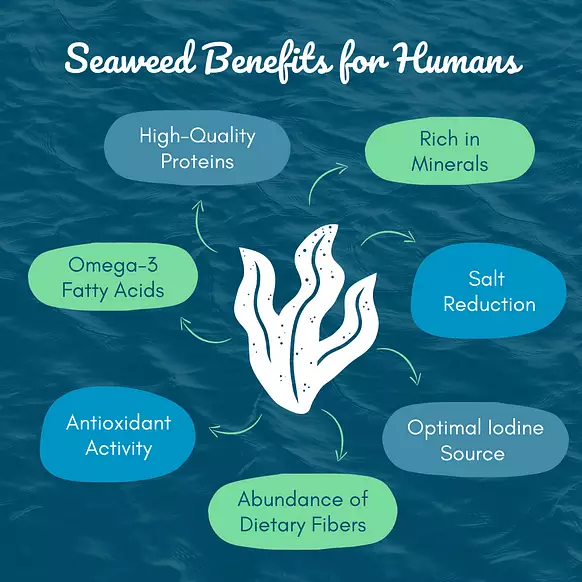The ICAR-Central Marine Fisheries Research Institute (CMFRI) has recently has been designated as a centre of excellence for Seaweed cultivation in India by the Department of Fisheries with the aim to enhance India’s role in the global seaweed industry.
About the Seaweed cultivation in India:
- Definition: Seaweed refers to various species of marine plants and algae, growing in oceans, rivers, and lakes.
- They are multicellular and macroscopic autotrophs.
- They are often referred to as sea vegetables.
- The term “seaweed” is misleading, unlike harmful weeds on land, seaweeds are essential to marine habitats and provide numerous benefits to marine creatures and humans alike.
Classification:
- Green (Chlorophyta)
- Brown (Phaeophyta)
- Red (Rhodophyta)
Characteristics of Seaweed (size):
- Microscopic Seaweeds: Includes phytoplankton that live suspended in water, forming the base of most marine food chains.
- Large Seaweeds: Such as giant kelp, which grow in abundant underwater “forests,” resembling towering redwoods.
- Medium-sized Varieties: Present in various colors including red, green, brown, and black, often washing up on beaches.
Applications of Seaweed:
- Nutritional Benefits: Rich in minerals (calcium, phosphorus, sodium, potassium) and vitamins (A, B1, B12, C, D, E).
- Health Benefits:
- Known for anti-inflammatory and antimicrobial properties.
- Used in cancer treatment.
- Manufacturing Uses:
- Seaweeds serve as effective binding agents (emulsifiers) in products like toothpaste and fruit jelly.
- Used as softeners (emollients) in organic cosmetics and skincare products.
- Agricultural Benefits: Enhances crop productivity through improved soil health and nutrient supply.
Ref: Source
| UPSC IAS Preparation Resources | |
| Current Affairs Analysis | Topperspedia |
| GS Shots | Simply Explained |
| Daily Flash Cards | Daily Quiz |
Frequently Asked Question:
What is seaweed?
Seaweed refers to various species of marine plants and algae that grow in oceans, rivers, and lakes.
What are the types of seaweed?
Seaweed is classified into three main types: green (Chlorophyta), brown (Phaeophyta), and red (Rhodophyta).
What are the nutritional benefits of seaweed?
Seaweed is rich in essential minerals like calcium, sodium, potassium, and vitamins A, B12, C, and E.
How is seaweed used in manufacturing?
Seaweed is used as an emulsifier in products like toothpaste and fruit jelly, and as a softener in organic cosmetics.
How does seaweed benefit agriculture?
Seaweed improves soil health and nutrient supply, enhancing crop productivity in agriculture.




